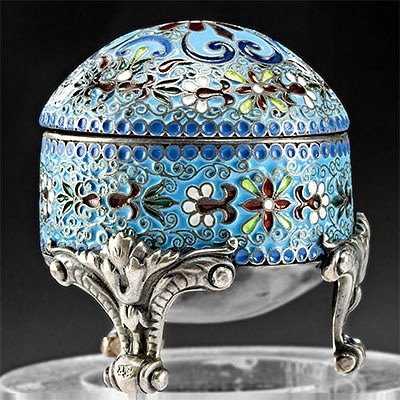Sumerian Stone Seal Bead - Chariot & Lamassu
Lot 102a
About Seller
Artemis Gallery
686 S Taylor Ave, Ste 106
Louisville, CO 80027
United States
Selling antiquities, ancient and ethnographic art online since 1993, Artemis Gallery specializes in Classical Antiquities (Egyptian, Greek, Roman, Near Eastern), Asian, Pre-Columbian, African / Tribal / Oceanographic art. Our extensive inventory includes pottery, stone, metal, wood, glass and textil...Read more
Categories
Estimate:
$2,000 - $3,000
Absentee vs Live bid
Two ways to bid:
- Leave a max absentee bid and the platform will bid on your behalf up to your maximum bid during the live auction.
- Bid live during the auction and your bids will be submitted real-time to the auctioneer.
Bid Increments
| Price | Bid Increment |
|---|---|
| $0 | $25 |
| $300 | $50 |
| $1,000 | $100 |
| $2,000 | $250 |
| $5,000 | $500 |
| $10,000 | $1,000 |
| $20,000 | $2,500 |
| $50,000 | $5,000 |
| $100,000 | $10,000 |
| $200,000 | $20,000 |
About Auction
By Artemis Gallery
Apr 1, 2021
Set Reminder
2021-04-01 12:00:00
2021-04-01 12:00:00
America/New_York
Bidsquare
Bidsquare : Odd Unusual Finds | Antiquity to Present Day
https://www.bidsquare.com/auctions/artemis-gallery/odd-unusual-finds-antiquity-to-present-day-6742
Ancient, Asian, Pre-Columbian, Ethnographic, American, and everything in-between Wild, weird, strange, interesting - who knows what you'll find. All pieces guaranteed to be as described. Convenient in-house shipping. Artemis Gallery info@artemisgallery.com
Ancient, Asian, Pre-Columbian, Ethnographic, American, and everything in-between Wild, weird, strange, interesting - who knows what you'll find. All pieces guaranteed to be as described. Convenient in-house shipping. Artemis Gallery info@artemisgallery.com
- Lot Description
Ancient Near East, Sumeria, ca. early 1st millennium BCE. A large black stone bead, cylindrical in form, and pierced vertically with a wide opening for suspension, featuring a series of auspicious symbols incised around its body: a spread-winged bird, iconographically similar to the winged sun symbol, above an altar; a standing warrior god in a chariot drawn by a winged quadruped; and a lamassu, a protective deity with a human head, bird wings, and bull or lion body. Finally, there is an eight-pointed star, known as the Star of Inanna, Star of Ishtar, or Star of Venus below one of the wings of the bird. Size: 0.7" W x 0.8" H (1.8 cm x 2 cm); 2.7" H (6.9 cm) on included custom stand.
Cylinder seals played a major role in the daily life of the Ancient Near East. Known as kishib in Sumerian and kunukku in Akkadian, royals, government officials, scribes, and slaves used them to transact business and send correspondence. They were worn around the neck or wrist and served as a signature and a guarantee, rolled into the moist clay of accounting and governance documents. They also link our modern world to the past - thousands of years ago, people were concerned with security and authenticity for the documents that they used to conduct business. Cylinder seals were a technological solution to a pressing problem, and their scenes are often complex to prevent forgery and identify individuals.
Provenance: private Zaveloff collection, Lakewood, New Jersey, USA, acquired before 2004
All items legal to buy/sell under U.S. Statute covering cultural patrimony Code 2600, CHAPTER 14, and are guaranteed to be as described or your money back.
A Certificate of Authenticity will accompany all winning bids.
We ship worldwide and handle all shipping in-house for your convenience.
#151469Light wear on surface commensurate with age but motifs are in very nice condition. Comes with modern clay rollout.Condition
- Shipping Info
-
All shipping is handled in-house for your convenience. Your invoice from Artemis Gallery will include shipping calculation instructions. If in doubt, please inquire BEFORE bidding for estimated shipping costs for individual items.
-
- Buyer's Premium



 EUR
EUR CAD
CAD AUD
AUD GBP
GBP MXN
MXN HKD
HKD CNY
CNY MYR
MYR SEK
SEK SGD
SGD CHF
CHF THB
THB















